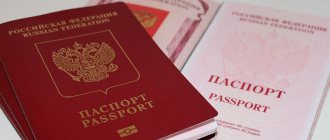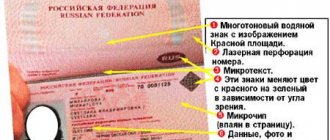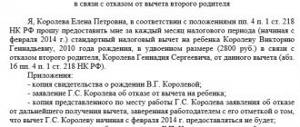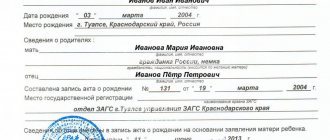When planning a family trip abroad, you must first take care of travel documents. And if adults only need an internal or foreign passport of a citizen of the Russian Federation, then the list of documents for a child is wider and more varied. So that you don’t have to comb through regulatory documents in search of the necessary information, we have prepared an article that will help you avoid unnecessary hassle and unpleasant surprises at the border.
A child can cross the Russian border accompanied by both parents or one of them, accompanied by third parties or independently. In all these cases, the approach to preparing a package of travel documents will be different.
Rules for children traveling abroad from the Russian Federation
This year, amendments were made to legislative acts regarding the rules for a child traveling abroad. It is officially approved that if a minor leaves the Russian Federation with one parent by car, train or plane, the written consent of the second is not requested. If the child travels alone, in addition to the passport, you will need to present a permit endorsed by a notary. You will also need it when accompanied by relatives.
Before applying for it, you need to check whether there is a ban on the child traveling abroad.
Documents for a child to travel abroad
To take children abroad, a minimum list of documents is provided. The main ones are your passport and birth certificate. The latter will verify family ties if the surnames are different. A minor requires a separate foreign passport, which is allowed to be issued from the moment the baby is born. When traveling with your mother or father, you will need the same papers.
If a child under 14 years of age travels to European countries, he can be entered into the parent’s old-style international passport, issued before 2010. If a separate seat is not taken for a child under two years of age, the ticket for it is not paid for. Children over two years old must have a ticket.
Important! If the child and the parent do not have the same surname, an additional certificate confirming its change, for example, a marriage certificate, is attached.
Procedure for obtaining documents
In fact, no difficulties should arise. In cases where both parents are Russian citizens, the child automatically receives Russian citizenship. Of course, in some countries where the so-called “law of the land” applies, someone born on the territory of a given country can claim its citizenship, but these cases are rather the exception. In most cases, the child receives the citizenship of the parents.
Let's not dwell on the intricacies of obtaining citizenship and talk about how to obtain the very first document of a newly minted member of society - a birth certificate. If you need to obtain a birth certificate from the country where the child was born, then the standard steps will be as follows:
- You receive a birth certificate from the maternity hospital and present it to the local municipality;
- Receive a birth certificate in the host country;
- Translate your birth certificate into Russian;
- Notarize the translation of documents;
- At the Russian consulate you place an apostille on the issued document.
If you need to obtain a Russian birth certificate:
- You receive a birth certificate from the maternity hospital;
- You make and certify a notarized translation of a document;
- Get an apostille at the Russian consulate - this is necessary to apply for child benefits;
- Apply for a Russian birth certificate to the Russian Consulate.
After completing the documents, a record of the birth of the child is entered into the parents’ passports. You cannot do without a high-quality translation of a birth certificate issued by a medical institution, so you need to approach this stage of obtaining a birth certificate with all responsibility. In some countries, the procedure for obtaining documents may be different, but this algorithm is applicable to most countries in Europe, the USA and Eastern countries popular with tourists.
Registration of a foreign passport for children traveling abroad: features
A passport for a child to travel abroad is issued regardless of his age. With this document, the child will be able to cross the border both with and without parents. The procedure for obtaining a child's foreign passport does not differ from that of an adult. The main condition for extradition is Russian citizenship.
Old and new passport
The departure of children abroad is confirmed by a foreign passport. For minors, there are 2 types of documents - old and new format. Advantages of the first:
- the cost of registration is lower;
- the presence of the baby is not required;
- short processing times.
With a biometric type, movement across the border will be faster. For children under two years of age, it is advisable to issue an old-style document.
Documents for a child's passport
List of certificates for obtaining a foreign passport for a child to travel abroad:
- application form - the form and sample form are available on the website of the Main Directorate for Migration Affairs of the Ministry of Internal Affairs;
- 4 photographs for an old document and 2 for a new one;
- birth certificate;
- for adults - passport;
- accompanying person's passport;
- receipt of payment of the duty;
- certificate confirming authority (for guardians).
Originals and copies are available.
Procedure, terms and cost of registration
To obtain a foreign passport, follow the following algorithm:
- Prepare the necessary certificates.
- Submit an application and papers to the authorized service.
After the specified time has passed, you must come to receive a completed foreign passport.
When planning a trip for a child accompanied by his parents, it is necessary to take care of obtaining a foreign passport in advance, since the processing time for the document is at least 1 month from the date of submission of the papers. An old-style international passport is produced faster.
The price of registration is affected by the type of passport (old or new sample) and the method of submission. The amount of the state fee and other expenses for the international passport of minors must be found out at the place of submission of documents. Amount of state duty for an old format passport:
- 700 rubles - when paying through State Services;
- 1 thousand - at a bank or terminal;
- 500 rub. — for entering the baby’s data into the parent’s passport.
For the issuance of a new type of international passport you will have to pay 1050 rubles. – on the State Services portal and 1500 – when paying the fee through a bank.
Possible reasons for refusal
Russian laws contain circumstances under which the authorized service has the right to refuse extradition. Main reasons:
- the minor does not have Russian citizenship;
- there is a ban on taking a child abroad from a parent (guardian);
- the form contains inaccurate information;
- a criminal case has been initiated against the child or is under investigation.
Regardless of the reason for the refusal, the authorized service employee is required to send a written notification with arguments.
Validity and renewal
The validity period of a child's passport does not differ from the validity period of an adult. If the travel document is of an old type, the period is 5 years. The biometric validity period is longer - 10 years.
When a child reaches 14 and 18 years of age, there is no need to change their passport. The procedure for replacing a document for one-year-old children is no different from others. If the child has a valid old-style entry document, he has the right to receive a new-style document.
Extension of a document includes the following steps:
- Submitting an application indicating the reasons for replacing the passport.
- Collection of information.
- Submitting them to the competent service.
An application for a new passport must be submitted six months before the expiration of the previous one. An expired document is not valid, even if the visas are still valid.
International passport for a child under 14 years of age
When planning a trip with a minor, you need to take care of obtaining a passport in advance. Even if the baby is less than 1 year old, he needs a separate document. The list of papers includes:
- parent's passport (with copies of all pages);
- paper proving the baby's citizenship;
- birth certificate (adoption, from guardianship authorities);
- questionnaire;
- old passport (if available);
- photos: 4 for the old-style passport and 2 for the new one;
- paid receipt.
If the citizen who submits the certificate is not related by blood to the baby, an additional document on adoption (taking into guardianship) is submitted.
The document is drawn up at the Migration Department, MFC or on the State Services website. Production time - up to 1 month. In the form, a dash is placed in the signature area, since such a right arises for a child only after 14 years of age. The presence of the child when submitting papers is not required.
Ways to obtain a passport
Several institutions are involved in the issuance. To receive the document please contact:
- to the visa center or the Russian Delegation;
- to the department of the Ministry of Internal Affairs at the place of residence;
- to the Russian Department of Foreign Affairs;
- to the Multifunctional Center (MFC).
It is also possible to submit documentation online - through the official website of the State Service. To use the service, you must register on the portal.
You should apply for a foreign passport at the place where you submitted the documentation.
If a child was born abroad: documents, rights, laws
Birth certificate
The next step is to obtain the child’s birth certificate. To do this, you need to contact the municipal authority, magistrate or other local authority (in other words, the local equivalent of our registry office). Keep in mind that now you no longer need to apply for a birth certificate to the civil registry office in Russia. According to the law , documents issued abroad are recognized as valid in the Russian Federation if they are “legalized,” unless otherwise established by an international treaty of the Russian Federation.”
Legalization and apostille
What is legalization? This is a procedure that certifies the authenticity of the signature and authority of the person who signed the document, the authenticity of the seal or stamp that affixes the document submitted for legalization, and the compliance of this document with the legislation of the host state.
However, Russia, like most European countries and the United States, has joined the Convention , which abolishes the legalization of documents. Instead of legalization, an apostille is affixed to a child’s birth certificate by a judicial or executive authority (for example, the mayor’s office). The apostille is affixed on the document itself or on a separate sheet stitched with the document. In some countries, an apostille can be affixed free of charge within a short time after the birth of a child.
Translation of documents into Russian
So, you have affixed an apostille to the necessary documents. Now you need to contact the consular department of the Russian Embassy of the country where you are located. But before this, you will need to translate the child’s birth certificate and the text of the apostille from a translator accredited by the local judicial authority, or from a translator listed on the consular section’s website on the Internet. After all, formally the Russian Embassy is a consular office of the Russian Federation outside the territory of the Russian Federation and the official language of documents is Russian.
Admission to Russian citizenship
Russian citizenship is issued at the Russian consulate abroad in accordance with the law .
Russian citizenship by birth
If your child was born abroad and both his parents are citizens of the Russian Federation, then he has the right to receive Russian citizenship by birth. In rare cases - for example, when the father is not indicated in the documents or if he is a stateless person, or declared missing, or his location is unknown - to obtain citizenship by birth, it is enough that only one parent is a citizen of the Russian Federation.
If one of the parents is not a citizen of the Russian Federation
If one of the parents is a citizen of the country where the child was born, then usually the municipal authority issues a citizenship insert. It is issued simultaneously with the birth certificate upon your application.
If the child’s father is a citizen of another state, you will need to decide which consular office to contact to obtain the child’s citizenship.
Carefully check the laws of the country of birth of the child to determine the possibility of obtaining Russian or other citizenship. In some countries that recognize citizenship by “right of blood” (unlike the United States, where citizenship is recognized by “right of soil”, that is, by virtue of the birth of a child in the United States), it will be impossible to retain citizenship of the country of birth when obtaining another citizenship. That is, in our case, the baby automatically loses the citizenship of the country of birth upon receipt of citizenship of the Russian Federation.
Admission to citizenship occurs like this - you submit an application to the consulate, it is considered, after which a stamp indicating “citizen of the Russian Federation” and the date of admission to citizenship is placed on the front page of the original birth certificate of the baby. Keep in mind that admission to citizenship is a separate consular action and the registration for obtaining citizenship is made independently of the registration for obtaining a foreign passport. In most countries, registration for citizenship and obtaining a foreign passport is carried out on the Internet. Therefore, please note that these are two separate procedures separated in time. Take this into account when planning your stay in the country.
Obtaining a passport
Now that your child is a citizen of the Russian Federation, he can receive a foreign passport .
To do this, his legal representative (this can be any of the parents, if he is a citizen of the Russian Federation) applies to the same consulate of the Russian Federation to obtain a passport of a citizen of the Russian Federation. As a rule, the processing time for an application for children under 14 years of age is no more than 2 weeks, so you can count on a quick return home. Now even a newborn child is issued a separate passport, that is, photos of children are no longer pasted into your passport.
To obtain a passport, the baby must be photographed. This can be done either at the consulate itself, or at any photo studio of this country (check the requirements on the consulate’s website), and the photo format must comply with Russian requirements. As a rule, photo studios located near the consulate know these rules and will print your photos in the required format.
Next steps
So, you have apostilled foreign birth documents, obtained Russian citizenship, received a foreign passport and can finally go home.
Be sure to check with the child’s country of birth whether the spouse’s consent is required if the baby returns home only with his mother.
And already at home, be sure to make two or more notarized copies of the original birth certificate. After all, this document will be with the child all his life, and copies of the certificate will be necessary, for example, to receive a lump sum benefit upon the birth of a child .
Now you can go apply for child benefits and payments.
Crossing the border of children without parents or with one parent: conditions, documents
The procedure for traveling abroad for minor citizens of the Russian Federation is regulated by Federal Law No. 114. In accordance with it, children have the right to cross the border with their family, with their mother or father, accompanied by grandmothers or other relatives. For this you need the following documents:
- personal passport;
- power of attorney - if the child travels with third parties;
- consent - when flying independently (in Schengen states, notarized permission from both parents is required).
To avoid problems at the airport, the papers are translated into the language of the foreign country to which the minor is sent.
Consent will not be required provided that the spouse did not file a statement of disagreement with the flight or train ride.
If a parent does not want his son (daughter) to leave the country, he has the right to submit an application to the Migration Department at his place of residence. Taking a child abroad without the permission of the father (mother) is unacceptable. Disagreement must be made in writing.
If for any reason it is not possible to obtain an export permit, a document proving this is provided. For example, a certificate from a single mother about the death of her husband.
If a minor is included in the parent’s passport, crossing the border using such a stamp has restrictions:
- departure from the country is possible only with the parent in whose document he was entered;
- If the child does not have a personal passport, he will not be able to return to his home country on his own.
The stamp is affixed by an employee of the authorized service. For making an entry on your own, a fine of 300 rubles will be charged to the parent.
Travel of a child outside the Russian Federation with one of the parents
According to Russian law, a child travels with one of the parents in the same manner as with both, i.e., he only needs to have his own international passport or be included in the international passport of the parent with whom he is traveling.
In 2015, the Border Service of the FSB of the Russian Federation announced changes and clarifications of the procedure for minors traveling abroad. Now, for example, children can be included in the stop list of the border service if one of the parents prohibits the child from leaving. However, the permission of the second parent for the child to travel abroad is no longer required. That is, if a child, a citizen of Russia, leaves the country together with at least one of the parents, adoptive parents, guardians or trustees, then in this case consent for the child to travel abroad is not required from the second parent.
However, it is worth separating the concepts of leaving the Russian Federation with a child and entering another country with him and the documents required to carry out one and the other. So, for example, a trip with a child to countries with mass beach holidays (such as Turkey, Egypt or Thailand) in most cases will not require you to prepare any additional documents other than those listed above. If you are planning to spend a vacation with children in one of the European countries (for example, Germany, Austria or the Czech Republic), then everything is a little more complicated. When planning a trip, it is worth taking into account the specific requirements of embassies for traveling with a child. It cannot be said that they represent insurmountable obstacles, but certain specifics are still present. You can obtain precise information about the procedure for entry into the country of a minor child at the embassy or consulate of the country you plan to visit. We would also like to draw attention to the fact that the visa itself is not a 100% guarantee of entry into the country, and the final decision to let you in or not is made by the border guard. Therefore, when planning a trip with children, take the preparation of documents very seriously.
Independent travel of a child abroad: when is it possible and what documents are required?
The law does not prohibit sending a child abroad alone: to an international camp, to visit relatives, for the purpose of education. But there are rules:
- up to two years he has no right to cross the border without the control of an accompanying person;
- from 2 to 12 years old, an accompanying person is required, this can be an airline;
- from 12 to 18 there must be a notarized consent.
When releasing a child alone, you must remember that the conditions of the border services are different.
When drawing up consent, you should translate it into the national language of the foreign country and make several copies. The permit must indicate the city (state) and period of stay. The minor must have a passport (or certificate) and a consent endorsed by a notary.
Foreign birth certificate - are there any pitfalls?
If a child received a local birth certificate abroad, he is not entitled to a Russian-style birth certificate: this document is always issued in only one copy. But no problems should arise in this regard - all Russian services and departments are obliged to accept foreign documents on an equal basis with Russian documents. Of course, you should always have a notarized translation of a birth certificate issued abroad with you.
Today’s document flow system is well-established, so the seemingly difficult task of obtaining a birth certificate if a child was suddenly born abroad, in fact usually does not cause any difficulties. A high-quality translation of the birth certificate and attention to local laws, which differ in some countries, is all that is needed for this.
Prohibition on taking a child abroad
If parents have not been deprived of their rights, they have the right to impose a ban on movement. The trip will not take place due to:
- lack of your own passport;
- lack of permission.
The parent is not required to justify his decision.
If the father or mother is against leaving, they apply to the Migration Department at their place of residence. For the next 5 days, border guards will have a temporary travel restriction - the child will not be released. The controversial issue is resolved through the court.
Before transporting a child to another state for permanent residence or vacation, you must make sure that there is (or is not) a ban. You can find out about the existing disagreement from your spouse or by visiting the migration department in person or by going to the website.
The ban is lifted by contacting this parent. If he does not want to change the decision, they go to court.
Departure of a child to the CIS countries: features
Children under 14 years of age will need a birth certificate with a stamp proving Russian citizenship. Otherwise, entry into a foreign country will be denied. To travel within the territory of Ukraine, the visa-free regime does not apply: you will need a foreign passport, but you will not be allowed in with an internal one.
Thus, when planning a family holiday abroad with a child, you should remember the rules for crossing borders for minors. To travel with one parent, consent from the other is not required. If a child crosses the border alone or with third parties, a notarized permission will be required.
Traveling a child abroad accompanied by both parents
The most common option is when the whole family goes on vacation. Modern legislation requires that the child have his own passport. In particular, in Decree of the Government of the Russian Federation dated January 19, 2010 No. 13 “On the procedure for using passport forms for a citizen of the Russian Federation...”, which came into force on March 1, 2010, it is categorically stated: “Entering information about his children into a parent’s passport does not give the right a child to travel outside the Russian Federation without an identity document of a citizen of the Russian Federation outside the territory of the Russian Federation.”
This rule appeared due to the fact that biometric passports are being introduced in Russia, which do not provide for entering information about children.
But there is good news: foreign passports issued before March 1, 2010, which have not expired, continue to be valid, and if information about the child is included in such a passport, this is the basis for a young traveler under the age of 14 to travel abroad with parents. In this case, you will not have to issue a separate identification document for the child.
You definitely need to pay attention to how information about children is entered into your international passport: it must include a photograph of each child, which is stamped by the passport and visa service. And if previously a photograph was pasted only after the child reached 6 years of age, now it is necessary to paste a photograph of the child, regardless of his age.
There is second good news: to enter the CIS countries with which Russia has signed an agreement on mutual travel of citizens (Belarus, Kazakhstan, Moldova, Armenia), children under 14 years of age will only need a birth certificate confirming Russian citizenship. Such confirmation is a citizenship stamp or a special insert in the certificate.
If a child traveling with their own passport does not have the same last name as their parents, you may need to confirm the relationship. In this case, you need to have with you the original or a notarized copy of the child’s birth certificate.
Separately, we note the following: children over the age of 14 cross the border using their own foreign (in the case of trips to CIS countries - internal) passport, regardless of whether they are traveling with or without their parents.








